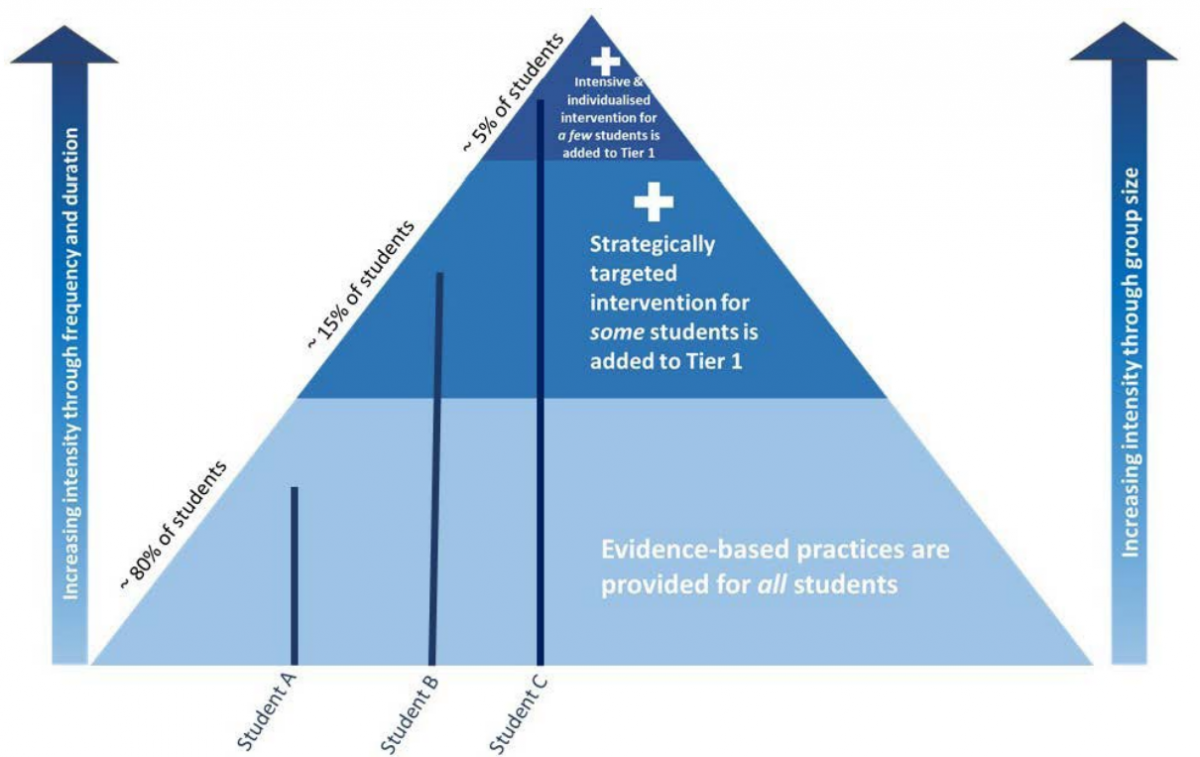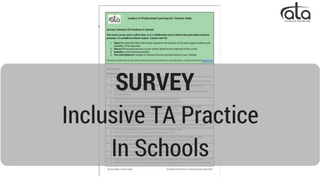Using a multi-tiered system of support (MTSS) with all students
The theme of the 2022 ACEL National Inclusion and Disability Conference was “If I Belong, I Succeed”.
As the leading professional learning organisation for education support staff in schools, and a conference sponsor, we were very interested to learn more about the ways in which educators can ensure that all students access and engage in learning.

at the ACEL National Inclusion and Disability Conference.
During the two day conference a few key themes emerged that resonated with our mission to empower educators to help students succeed.
In the first of a series of short articles, we look at some of the evidence based research presented at the conference, the implications for education support staff, and how our professional learning stacks up.
A Multi-Tiered System of Support (MTSS)
You may already be familiar with two multi-tier frameworks being used in schools.
The Positive Behaviour whole school framework takes a proactive, preventative approach to ensure all students receive the appropriate level of support to help them succeed at school.
The Response to Intervention (RTI) model, enables teachers to identify individual learning needs, and provide different tiers of intervention in targeted settings
A Multi-Tiered System of Support (MTSS) includes both academic and behaviour support, and is intended to identify the most appropriate support required for individual students to make progress.
At the conference, Dr Kate de Bruin, Senior Lecturer, Inclusion and Disability, Faculty of Education, Monash University, Melbourne, explained how a Multi-Tiered System of Support (MTSS) can be used as a framework for schools to deliver effective educational services to all students.
The MTSS framework is organised across three tiers of support:
All students start at Tier 1 and are provided with additional support, as needed.
Tier 1: Evidence-based practices are provided for all students
Tier 2: Strategically targeted intervention is provided to some students
Tier 3: Intensive and individualised intervention is provided for a few students

Comparing Implementation in Primary and Secondary Schools’,
LDA Bulletin, vol. 53, no. 3, pp. 20
Developing capacity, and fostering effective team-based collaborations
Teacher aides work in collaboration with teachers to provide support to students at all three tiers, including general classroom learning support, targeted support in areas such as literacy and numeracy, and intervention for students with disability and additional needs.
The research recommends that for the MTTS framework to be successful, schools must continually develop the capacity of teaching teams, and foster effective team-based collaborations.
Developing the capacity of teacher aides to support the effective implementation of teaching and learning is an essential aspect of a MTTS framework in schools.
Building the capacity of teacher aides to use evidence based practices with all students
Professional learning for education support staff in schools is at the core of what ATA does, and the conference enabled us to evaluate how our professional learning resources align with current and emerging evidence based practices.
One professional learning resource that builds capability and fosters collaboration is the four-part professional learning program Effective Teacher Aide Practices for Schools (eTAPS).
eTAPS is based on research and develops the capacity of support staff to use high impact, evidence based strategies, when working with students in a Multi-Tiered System of Support.
The four eTAPS Modules build knowledge, skills and strategies to effectively support student learning
You can learn more about the research that informs eTAPS, and how to use this professional learning program to develop the capacity of your teaching teams, here.




